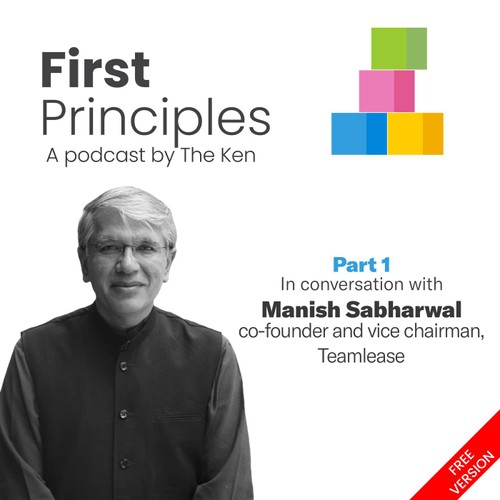
 First Principles
First Principles Part 1: Manish Sabharwal of Teamlease on creating great ancestors, India’s development journey and ‘regulatory cholesterol’
27 snips
Jun 24, 2025 Manish Sabharwal, Co-founder of Teamlease and expert on labor markets, shares insights on India's development journey. He discusses the importance of long-term thinking in creating a legacy and addresses challenges like wage stagnation and the transition from agriculture. Manish critiques bureaucratic hurdles and corruption, highlighting their impact on growth and AI's potential in society. He also emphasizes the undervaluation of care work and the need for economic reforms to foster innovation and entrepreneurial freedom in India.
AI Snips
Chapters
Books
Transcript
Episode notes
Running on Mind Not Legs
- Manish Sabharwal believes that major career transitions involve shifting from relying on energy to relying on the mind.
- This mirrors the economic idea of moving from basic inputs to innovation and entrepreneurship for growth.
India's Policy Handicapped Growth
- India’s development struggle is partly due to policy choices handicapping labor and capital combination.
- This led to many small enterprises with labor but no capital, and a few with capital but no labor.
Key Life Lessons to Learn
- Learn the power of compounding, probability, and that omissions are costlier than commissions.
- Focus on long-term gains rather than short-term rewards for lasting impact.








